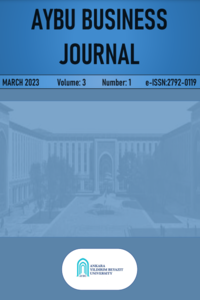Abstract
References
- Akkemik, K.A., and Özen, Ş. (2014). Macroeconomic and institutional determinants of financialisation of non-financial firms: Case study of Turkey. Socio-Economic Review, 12, 71-98.
- Al-Amoudi, I., & Willmott, H. (2011). Where Constructionism and Critical Realism Converge: Interrogating the Domain of Epistemological Relativism. Organization Studies, 32(1), 27-46.
- Alvesson, M., and Karreman, D. (2000). Varieties of discourse: On the study of organizations through discourse analyses. Human Relations 53(9), 1125–1151.
- Alvesson, M., and Sandberg, J. (2011). Generating research questions through problematization. Academy of Management Review, 36(2), 247-271.
- Ansari. S., Fiss, P.C. and Zajac, E. (2010). Made to fit: How practices vary as they diffuse. Academy of Management Review, 35(1), 67-92.
- Arthur, C. (2012). Financial Literacy Education. Rotterdam: Sense Publishers.
- Atkinson, A. and F-A. Messy (2013). Promoting financial inclusion through financial education: OECD/INFE evidence, policies and practice, OECD Working Papers, Paris: OECD.
- Benford, R.D., & Snow, D.A. (2000). Framing processes and social movements: An overview and assessment. Annual Review of Sociology, 26, 611–639.
Abstract
This paper examines the forms of discursive work during the dissemination of a management idea in Turkey from the perspective of organizational institutionalism. The idea of financial literacy is defined as the ability to make sound and rational financial decisions to improve one’s own financial well-being. Especially in the aftermath of the global financial crisis in 2008, the international organizations have promoted financial literacy for its potential to enhance household wealth, financial stability, and national growth. In Turkey, the efforts to promote financial literacy have been taken on primarily as a corporate social responsibility activity by the financial corporations, their associations, non-profit organizations, and by the social enterprises. The paper aims to contribute to the debate with the aid of institutional work literature, focusing on how actors construct meaning in selectively attending to societal discourses in the context of institutional transformations. In this vein, the institutional work studies propose a framework that emphasizes the need for focusing on agential practices in analyses of institutional processes. This paper draws insight from the institutional work to understand the actors’ purposive practices in engaging in discursive work around an issue. The analysis delineates four discursive works employed during the social constitution of meaning in the corporate sustainability practices of the financial field in Turkey. These interrelated discursive works consist of neutralizing transformations, constituting subjects, constructing technologies of governance, and creating chain of equivalence around the common good.
References
- Akkemik, K.A., and Özen, Ş. (2014). Macroeconomic and institutional determinants of financialisation of non-financial firms: Case study of Turkey. Socio-Economic Review, 12, 71-98.
- Al-Amoudi, I., & Willmott, H. (2011). Where Constructionism and Critical Realism Converge: Interrogating the Domain of Epistemological Relativism. Organization Studies, 32(1), 27-46.
- Alvesson, M., and Karreman, D. (2000). Varieties of discourse: On the study of organizations through discourse analyses. Human Relations 53(9), 1125–1151.
- Alvesson, M., and Sandberg, J. (2011). Generating research questions through problematization. Academy of Management Review, 36(2), 247-271.
- Ansari. S., Fiss, P.C. and Zajac, E. (2010). Made to fit: How practices vary as they diffuse. Academy of Management Review, 35(1), 67-92.
- Arthur, C. (2012). Financial Literacy Education. Rotterdam: Sense Publishers.
- Atkinson, A. and F-A. Messy (2013). Promoting financial inclusion through financial education: OECD/INFE evidence, policies and practice, OECD Working Papers, Paris: OECD.
- Benford, R.D., & Snow, D.A. (2000). Framing processes and social movements: An overview and assessment. Annual Review of Sociology, 26, 611–639.
Details
| Primary Language | English |
|---|---|
| Subjects | Business Administration |
| Journal Section | Research Articles |
| Authors | |
| Publication Date | March 2, 2023 |
| Published in Issue | Year 2023 Volume: 3 Issue: 1 |


